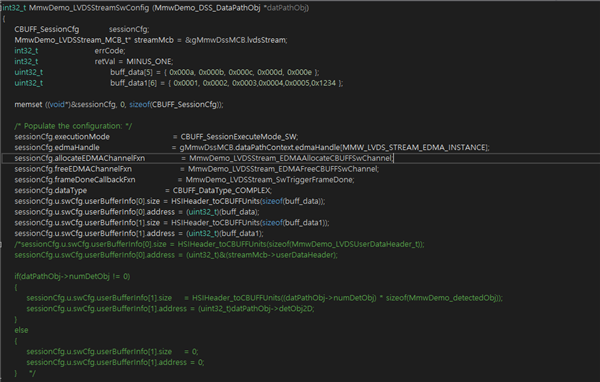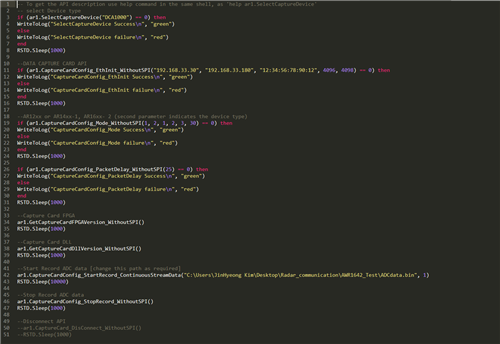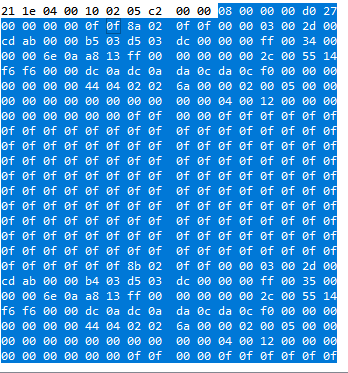Other Parts Discussed in Thread: AWR1642,
Hi, I am trying to send user pre-defined data from AWR1642 to DCA1000evm through lvds and from DCA1000 EVM to PC.
I refereed https://e2e.ti.com/support/sensors/f/1023/p/758435/2803488 to modify dss_lvds_stream.c like below to test whether the data is send correctly
I added two user data defined in that LVDSStreamSwConfig function (buff_data,buff_data1)
After building new demo bin file with this dss_lvds_stream.c, I ran the Radar AWR1642 with CLI command mentioned below lvdsStreamCfg -1 1 0 1 to send user data to lvds
After confirm that Radar are running with MATLAB, with some modification of lua script mentioned at https://e2e.ti.com/support/sensors/f/1023/t/759979
I run lua scripts on mmwave Studio lua shell with the commands
However, with monitoring using Wireshark, I could not find and data that i wrote on LVDSStreamSwConfig.
What part do i miss to capture user data through lvds and ethernet communication using AWR1642 and DCA1000?
Thanks a lot
Jinhyeong Kim





